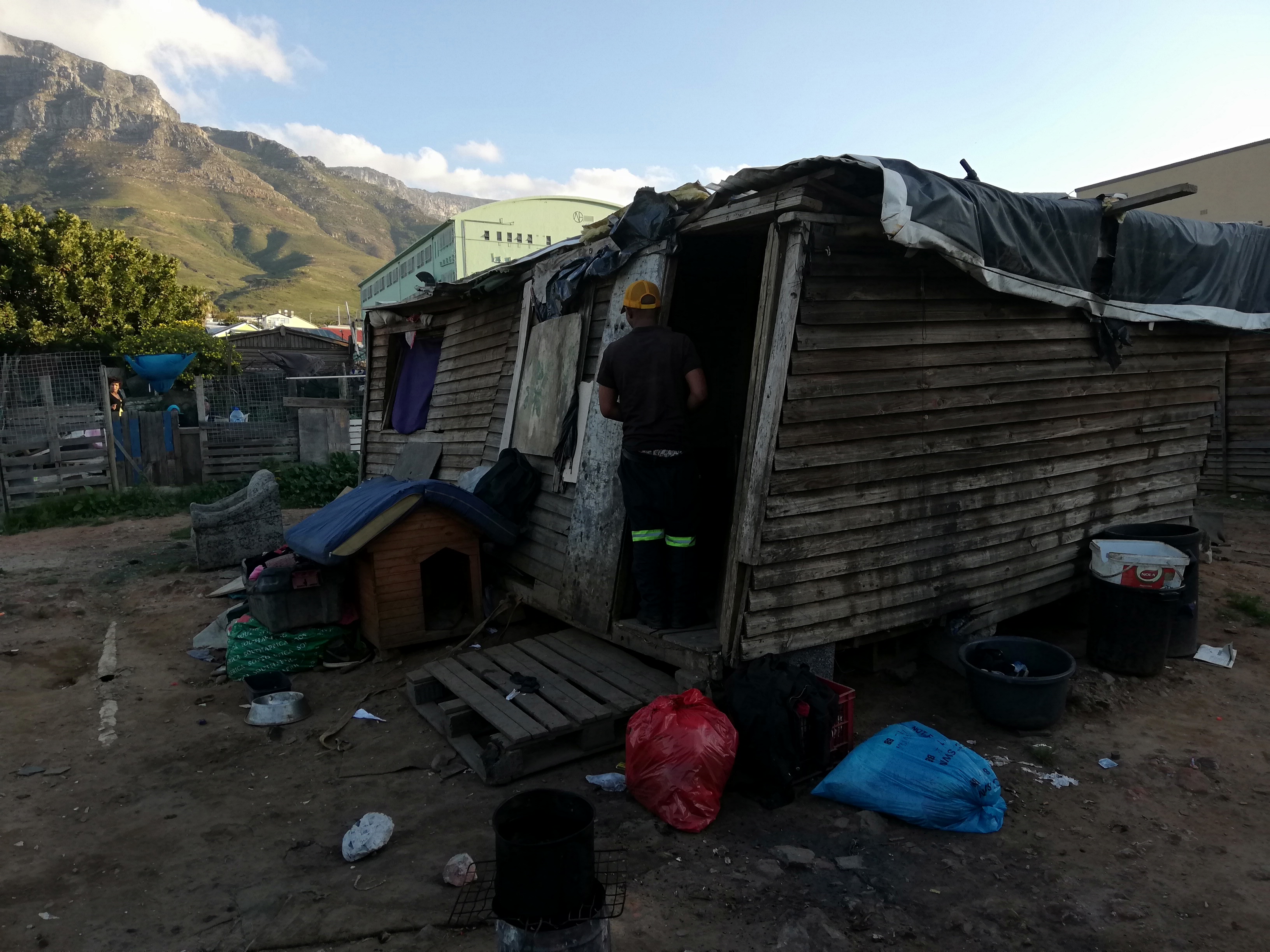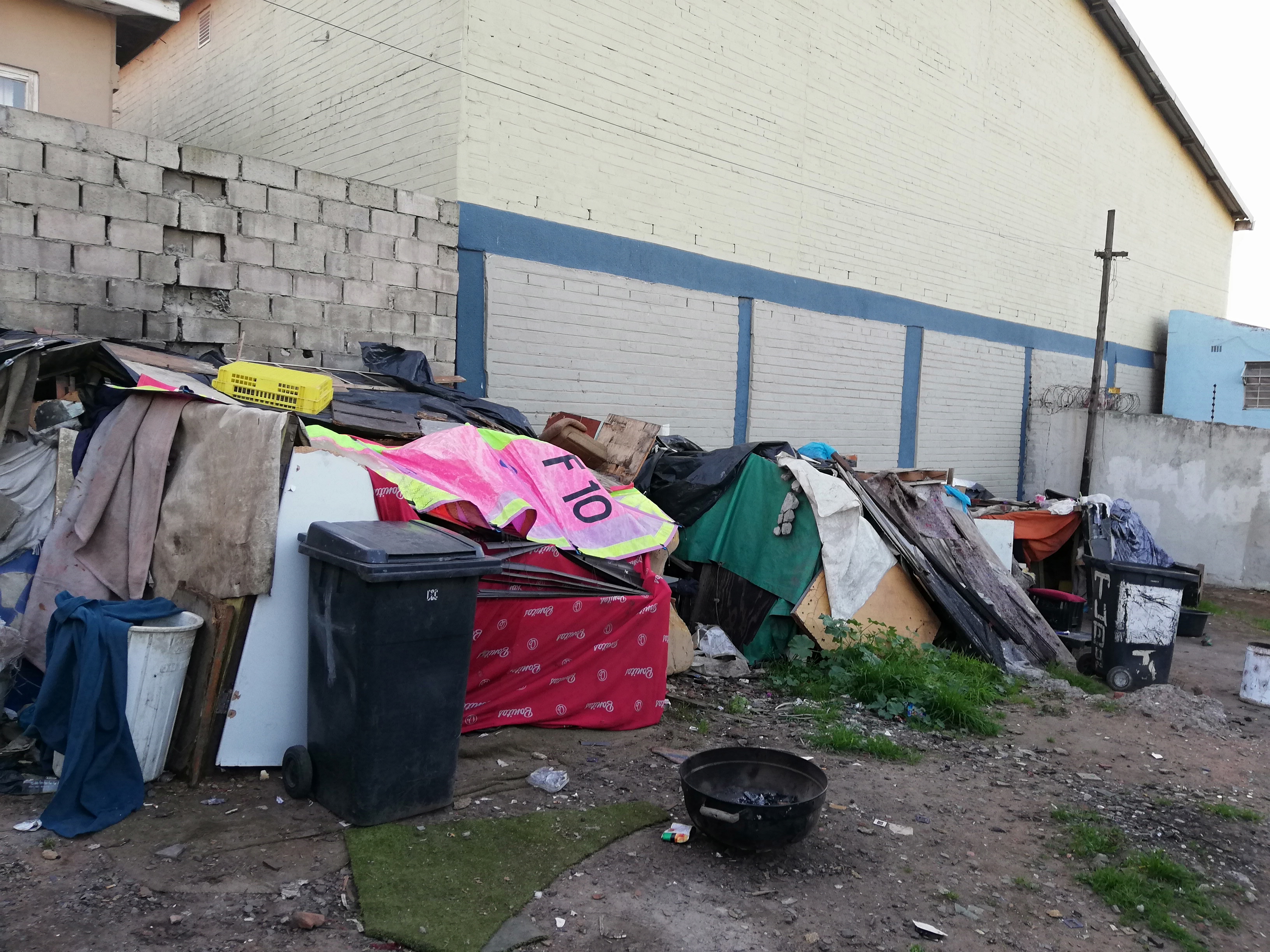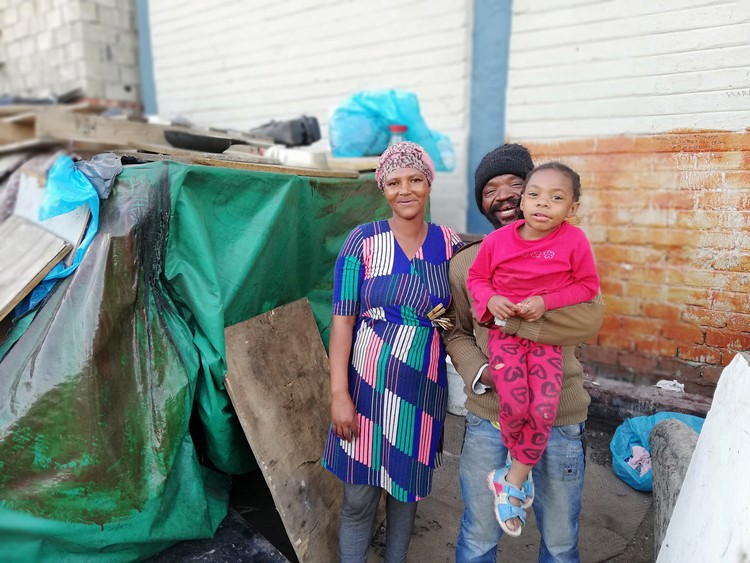Social housing: what if we can’t pay the rent, ask Salt River families
Pine Road residents worried about City plan
Families to be moved from the informal settlement in Pine Road in Cape Town’s Salt River are afraid that they will not be able to return once new housing is built.
Construction of new transitional housing for 88 families in Pickwick Street will be complete before the end of the year, says Brett Herron, Mayoral Committee Member for Urban Development. Herron said those living in the informal settlement in Pine Road would be moved to Pickwick and this would free up Pine Road for the development of social housing.
But Pine Road residents are sceptical, fearing that they will be left in transitional housing once the development has been completed and not come back to Pine Street.
Social housing is available to households earning R3,500 to R15,000 per month.
Most of the Pine Road families are dependent on social grants or odd jobs.
“What if we do not qualify for that development? There is nothing that says we will move back here and have homes here once the development is done,” said community leader Quinton Moos.
Moos has been living in the informal settlement for more than 23 years. He lives with his wife and three children in a two-room wendy house which he says was given to him in 2006. He says the informal settlement has about 20 families. There is one working tap, no electricity and two toilets.
“We want better places to stay, and do feel that this could be an opportunity, but we need clarity on the long term plan for us. What happens if people cannot afford to pay that rent?” said Moos.

Some of the Pine Road families live in wendy houses. Photo: Thembela Ntongana
Some of the families are afraid that they will be moved from Pickwick Street to transitional housing further away, such as Blikkiesdorp or Wolwerivier instead of coming back to Pine Road.
Pine Road is one of the sites that the City of Cape Town has identified in the inner city to be developed for affordable housing. All the sites are within 5km of the city centre and have good access to public transport. The City estimates that the final developments should benefit at least 4,000 lower-income households.
The Woodstock Hospital site, Salt River Market and New Market Street are also among the areas marked for development.
Gabiba Fredericks lives with her two children. Only her daughter works, part time.
“I was the first person here. Some of my children were born here in this place. For 26 years this has been my home,” said Fredericks.
She would like to move into a better place, but would prefer to move to a permanent home where she does not have to share facilities with other families. In the transitional housing in Pickwick Street, families will have to share bathrooms and kitchens.
Another resident, Kathy Paulse, says she has been living in the community for 13 years. She lives in a one-roomed shack with her partner. Both do odd jobs.
She is worried that they will not be able to afford rent in Pickwick Street or in the new Pine Road development. “What will happen to me if I am moved to this low cost housing that they are talking about and I can’t afford to pay the rent?”
“How long would we be staying there? No one is telling us these things,” said Paulse.

Four families live in shelters behind the wendy houses. Photo: Thembela Ntongana
Grace Winnaar lives with her husband Jan Klaaster and her daughter Genevieve in a makeshift shelter and has been staying there for the last ten years. She is an Expanded Public Works Programme contract worker, earning R1,060 fortnightly. Her husband is unemployed.
Winnaar would love to get a place so she can live with her two other children who were taken away from her by social workers. She is looking forward to moving, but is worried about paying rent.
“I want a place where I can put on a light, where my child doesn’t have to cross the street to go to the toilet. I most likely will not be able to afford to pay and that is my biggest worry because I do not want to be on the streets again.”
“I do not want my child to grow up in the street like me. I want her to have a home,” said Klaaste.
Herron said families offered places in Pickwick Street would sign lease agreements and pay monthly rent based on what they can afford. If necessary, the City would subsidise the families through the Rental Indigent Scheme, he said.
“Those families who are moved to the transitional housing facility at the Pickwick site will be assisted to access housing opportunities they may qualify for. It is very possible that some of those families could qualify for the social housing opportunities that we will be developing in Pine Road and, as such, they may choose to return to live in these units should they qualify,” said Herron.
© 2018 GroundUp.
This article is licensed under a Creative Commons Attribution-NoDerivatives 4.0 International License.
You may republish this article, so long as you credit the authors and GroundUp, and do not change the text. Please include a link back to the original article.



